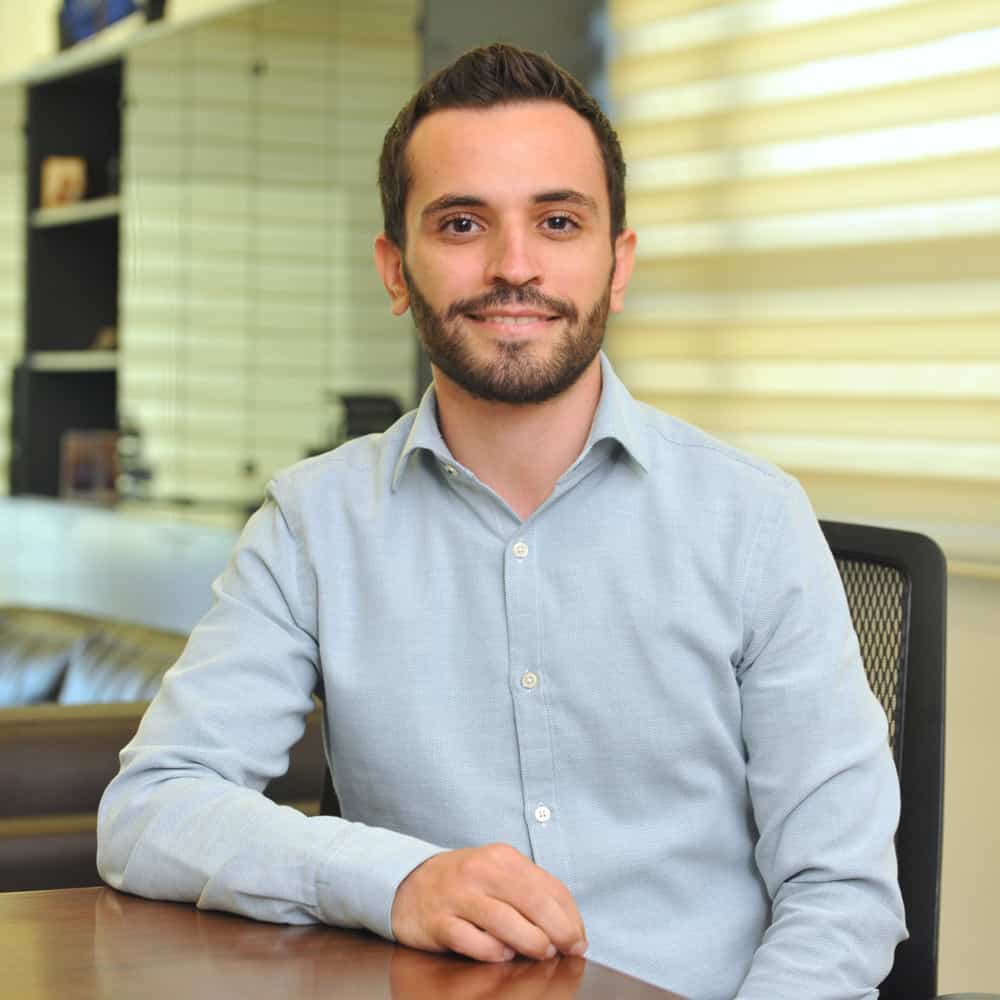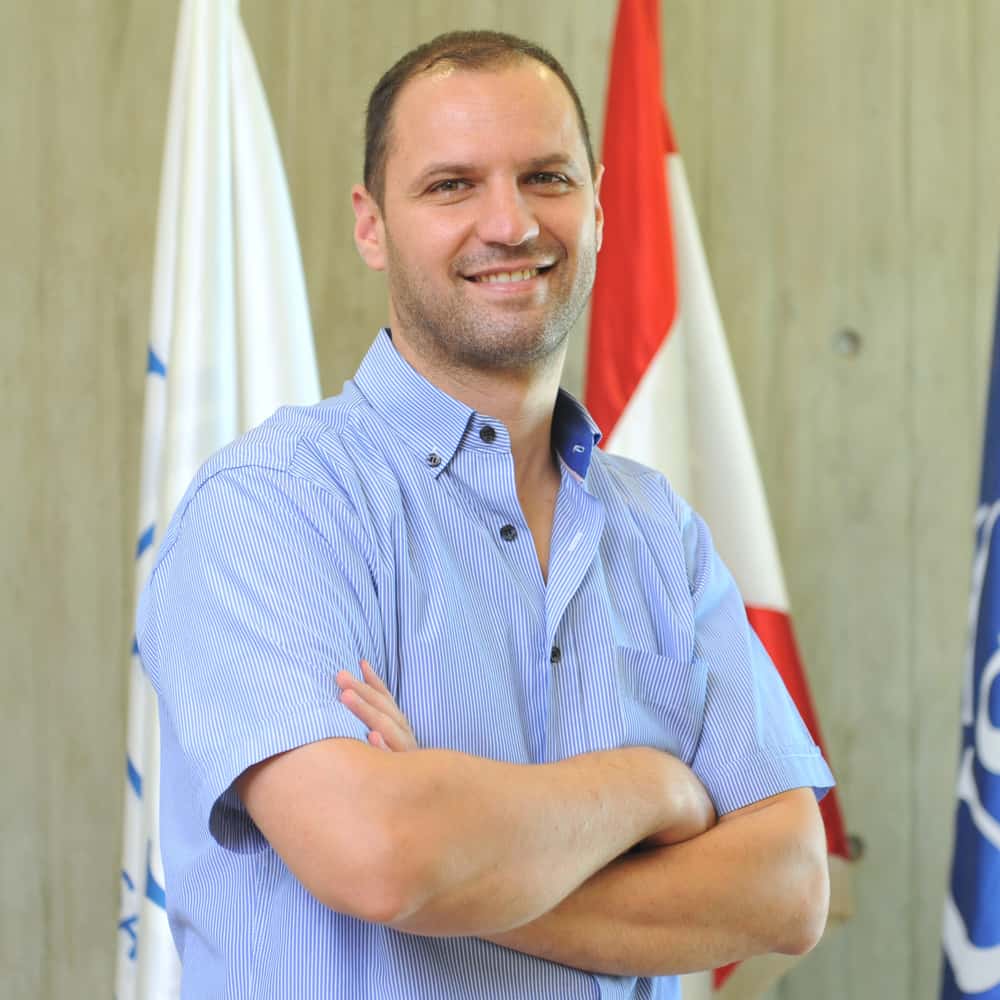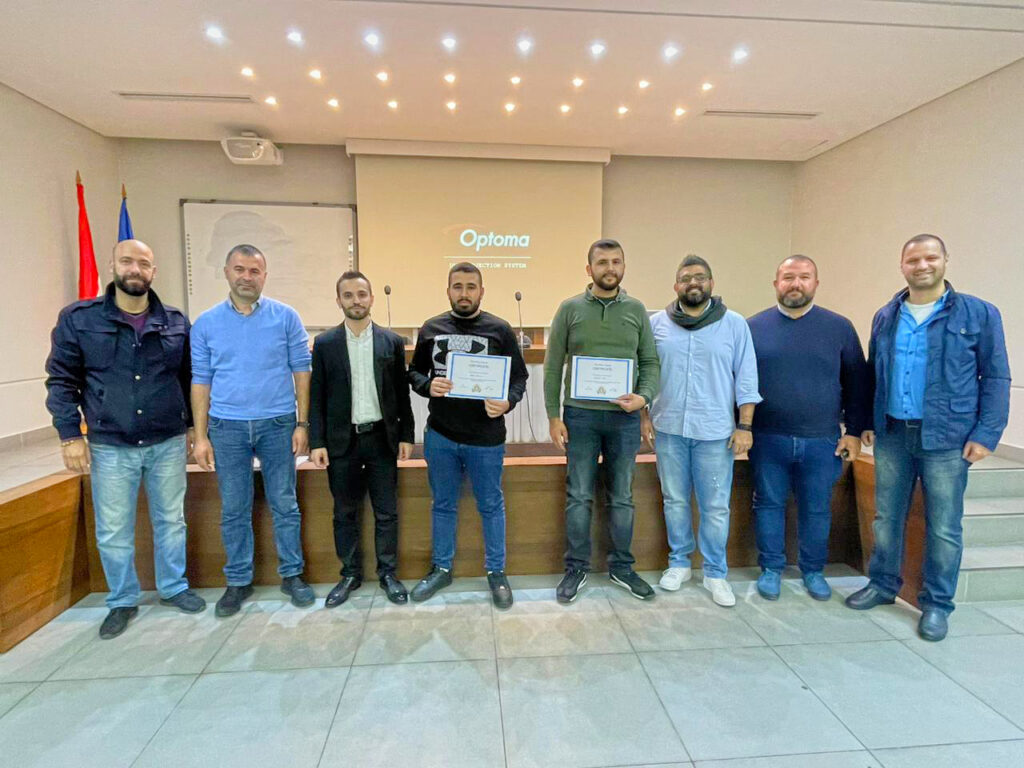QOOT Cluster, a Lebanese agri-food innovation cluster, facilitates cooperation between academia and industry. One of its latest endeavors was supporting Robinson Agri in designing a lightweight multi-span greenhouse for export. The organization supported the launch of a design competition for senior Civil and Mechanical engineering students from the School of Engineering at Holy Spirit University of Kaslik (USEK). The winning team received a certificate and a cash prize. This initiative is part of the Industry-Academia linkages activities developed by QOOT cluster, to foster Innovation.
Multi-span greenhouses are modular structures that can be adapted in a way to meet every space requirement. In modern agriculture, its importance lies in being more energy efficient than a regular single-span greenhouse because it is better at heat retention. In addition, its high-roofed structures are stronger and more productive.
In a recent interview, Elias Farah and Nemr El Hajj, professors from the School of Engineering at USEK, spoke about the activity’s significance. The project aimed to find an optimal design for a multi-span greenhouse to resist environmental conditions like wind loads, rain, and snow. The competition pushed students to think outside the box and provided a closer look at the real engineering world. It was an excellent chance for junior designers to showcase their great ideas, analytical skills, and innovation in engineering.

“The competition pushed students to think outside the box and provided a closer look at the real engineering world. It was an excellent chance for junior designers to showcase their great ideas, analytical skills, and innovation in engineering.“
Professor Elias Farah
Academia and industry partnerships are increasingly viewed as a vehicle to enhance innovation through knowledge exchange. Micro/small and medium-sized enterprises (M/SMEs) are the primary economic drivers in Lebanon, representing majority of the companies and an important share of the employment. However, these companies need help in advanced R&D and a supportive environment for innovation. Lebanese universities struggle to produce applied research projects due to a lack of government funding, weak infrastructure, and a lack of tech transfer capabilities and IP policies. QOOT Cluster is crucial in linking SMEs needing more resources to develop their R&D with universities developing academic curriculums.
The collaboration between the School of Engineering at USEK and Robinson Agri will continue. The two organizations will collaborate on new topics within final year projects with the students and mini projects in different technical courses. The partnership will allow students to work on challenging real-world projects and open new doors. USEK’s School of Engineering programs are being continuously developed and delivered in a close collaboration with the industrials ensuring thereby programs that are shaped based on the market’s needs.

“The collaboration between universities and the industry is increasingly perceived as a vehicle to enhance innovation through knowledge exchange. Clusters such as QOOT are significant in linking SMEs that do not have the resources to develop their research and development with the universities, which are on one side developing their academic curriculums without assessing the real needs of the industrial sector and, on the other side researchers are focusing on basic theoretical research.“
Professor Nemr El Hajj
Maintaining open channels and activities between universities and the market regarding curriculum and problem-solving requires continued cooperation. Universities and the market can offer a range of opportunities for students by working together. This type of partnership can provide students with skills that can be applied directly in the workforce, support the development of new technology, and enhance knowledge exchange.
In conclusion, the collaboration between Robinson Agri and USEK was a successful example of the significance of academia/industry partnerships. QOOT Cluster played a vital role in bridging the gap between the two sectors and facilitating the development of a greenhouse that meets industry needs. Such activities allow students to work on challenging real-world projects and open new opportunities for collaboration between academia and industry.







